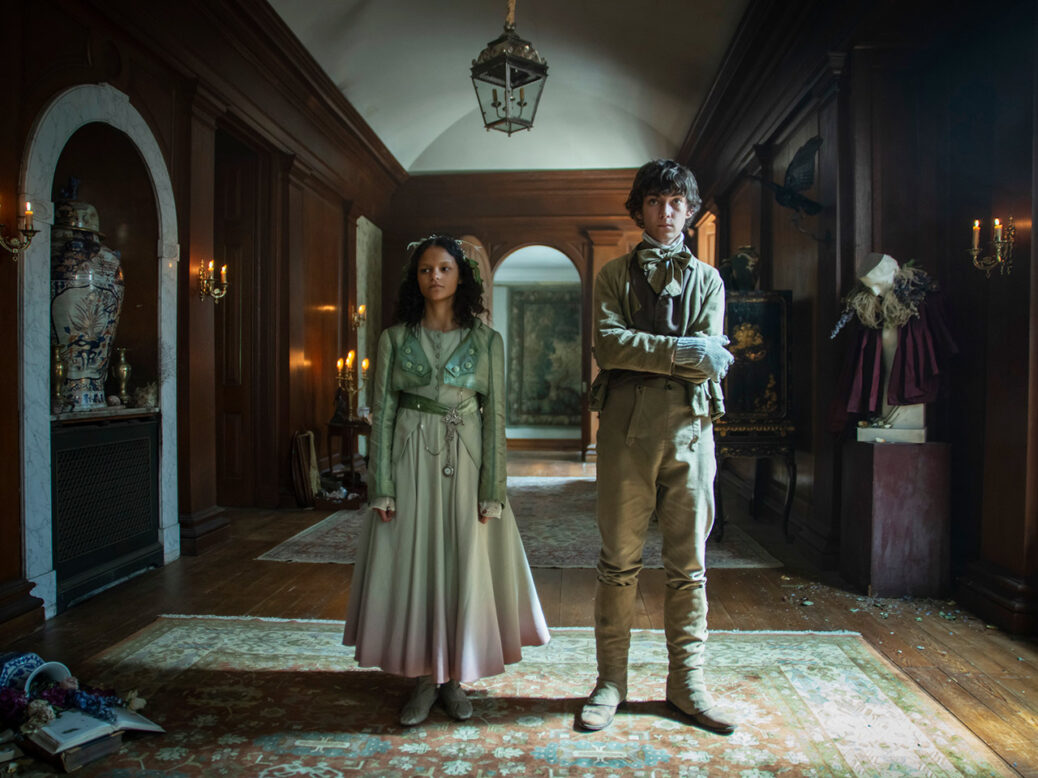
My granny, who left school when she was 13, thought Charles Dickens was the greatest storyteller who ever lived. She couldn’t read the books herself, because she was blind. But she would listen to them, unabridged, on huge tapes that were sent to her, along with a special machine on which to play them, by the Royal National Institute for the Blind (this was before audiobooks). When I visited her, I used to sometimes watch her for a while before tapping on the window to let her know I’d arrived. There she would be, in a chair by the fire, utterly rapt, her entire body at an angle, as if it might be physically possible for her to enter the narrative if only she could lean forward far enough. I always hated to interrupt these encounters with Sam Weller and Mr Micawber, with Kate Nickleby and Amy Dorrit.
What kind of writer thinks they can improve on Dickens? The same kind of writer, presumably, who doesn’t believe he (Dickens) is for everyone. Steven Peaky Blinders Knight hasn’t actually said that he regards his adaptation of Great Expectations as better than the novel. But then, he doesn’t need to. Only hubris can account for the changes he has made to character and plot, alterations so crass their effect on Dickens’ story is akin to that of a magic marker on a Rembrandt. Only hubris can account for this vandalism and destruction, for this insistence on patronising an audience he fears will be bored (or confused) without his help, his woeful underlinings. I’m not one of those who thinks Dickens has been – or ever can be – adapted too much; a part of his wondrousness is that he can be remade, enjoyed afresh, again and again. In this instance, however, I’m giving you a health warning. This is so bad, it should be illegal.
[See also: David Attenborough’s Wild Isles makes me proud to be British, despite everything]
Great Expectations is about snobbishness, and how it corrupts character. But while Knight has said that he has a special affinity with its hero, Pip (both are the sons – adopted, in Pip’s case – of blacksmiths), neither the book’s moral message, nor its cast of extraordinary characters, are enough for him. Weren’t the Victorians terribly dark, after all? And wouldn’t Dickens have loved to write for the screen? Clutching these clichés tightly to himself, as if no one had ever thought of them before, Knight first fillets the book of all its tenderness and humour. Then he sets about his ghastly, prurient embellishments, fiddling needlessly with everything save for the mud on the Kent marshes and Magwitch’s beard. What is big must be made bigger.
Mr Jaggers (Ashley Thomas), previously a hard but honest lawyer, is now a man who blackmails a judge by threatening to reveal he is a “sodomite”, and Mr Pumblechook (Matt Berry), Pip’s pompous great-uncle, is now a sexual masochist who pays Mrs Gargery, Pip’s harridan of an older sister, a few shillings to thrash his bare behind. As for Miss Havisham (Olivia Colman), while she remains a desiccated spinster, a jilted bride who will never take off her wedding dress, in Knight’s clammy hands, she’s also a pervert and an opium addict. When Pip (Fionn Whitehead) reaches adulthood, Havisham and her adopted daughter, Estella (Shalom Brune-Franklin), coolly provide him with a woman so he can lose his virginity – a parishioner at whom he later smirks in church (here, Knight helpfully scrawls something about Victorian hypocrisy in the margin of his screenplay). If all this is entirely gratuitous, it’s also extremely monotonous, which is quite something in the context of Dickens.
The performances are desperately underpowered, as if everyone senses what they’re up against (these lines! This direction!). Colman, with her blackened teeth and darting eyes, is the best of the lot, though her costume and make-up are doing about half the work (her bridal headdress looks like a galleon that has run aground). But everyone else wants for magnetism; Whitehead and Brune-Franklin in particular have all the delicacy and charisma of a pair of Billy bookcases. Why do their voices sound so flat, so weirdly affectless? Is it, as I suspect, because someone has told them to sound the opposite of what they imagine to be Victorian? I don’t know, but the upshot of it is that for the first time in my life, I don’t care what happens to poor old Pip; I won’t be there to see him treat dear Joe Gargery coldly, which will at least spare me the usual bucketload of tears.
Great Expectations
BBC One, 26 March, 9pm
[See also: The Cockfields is a genius, black-hearted British social comedy]
This article appears in the 29 Mar 2023 issue of the New Statesman, Easter Special






